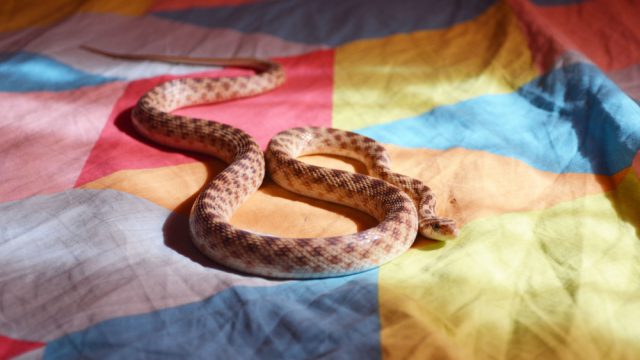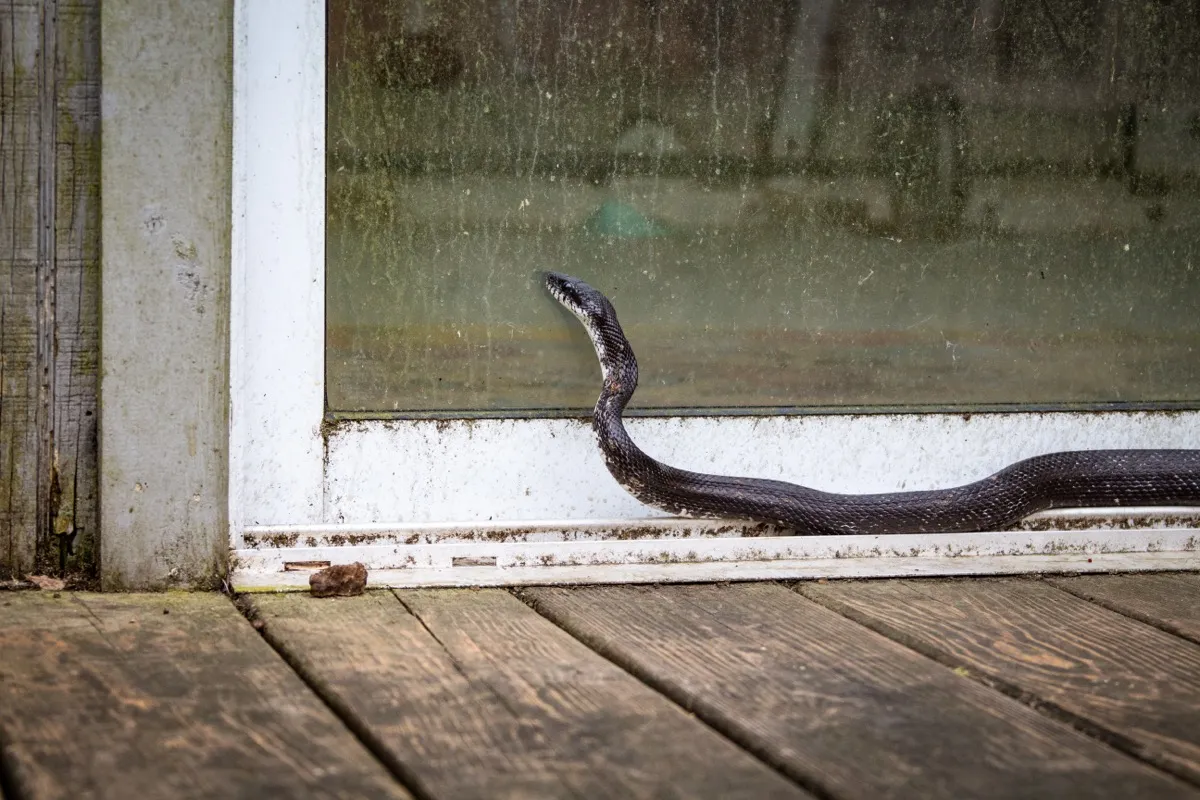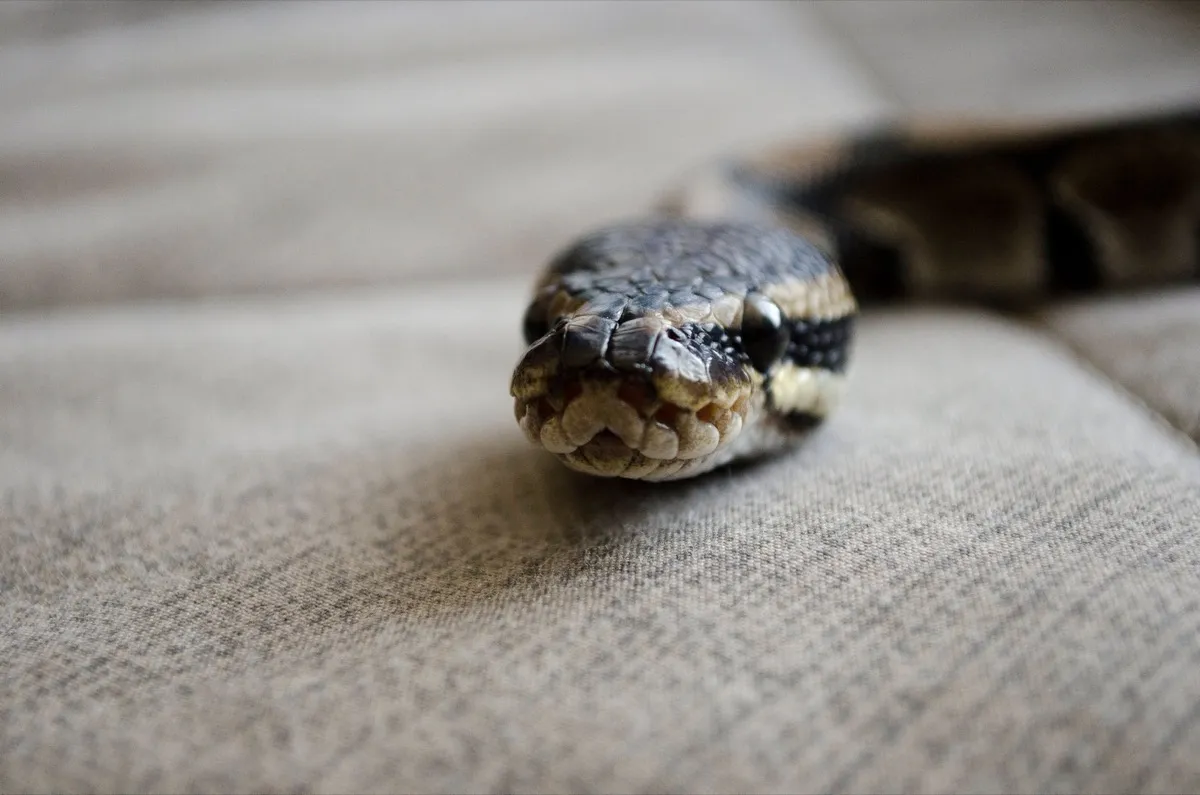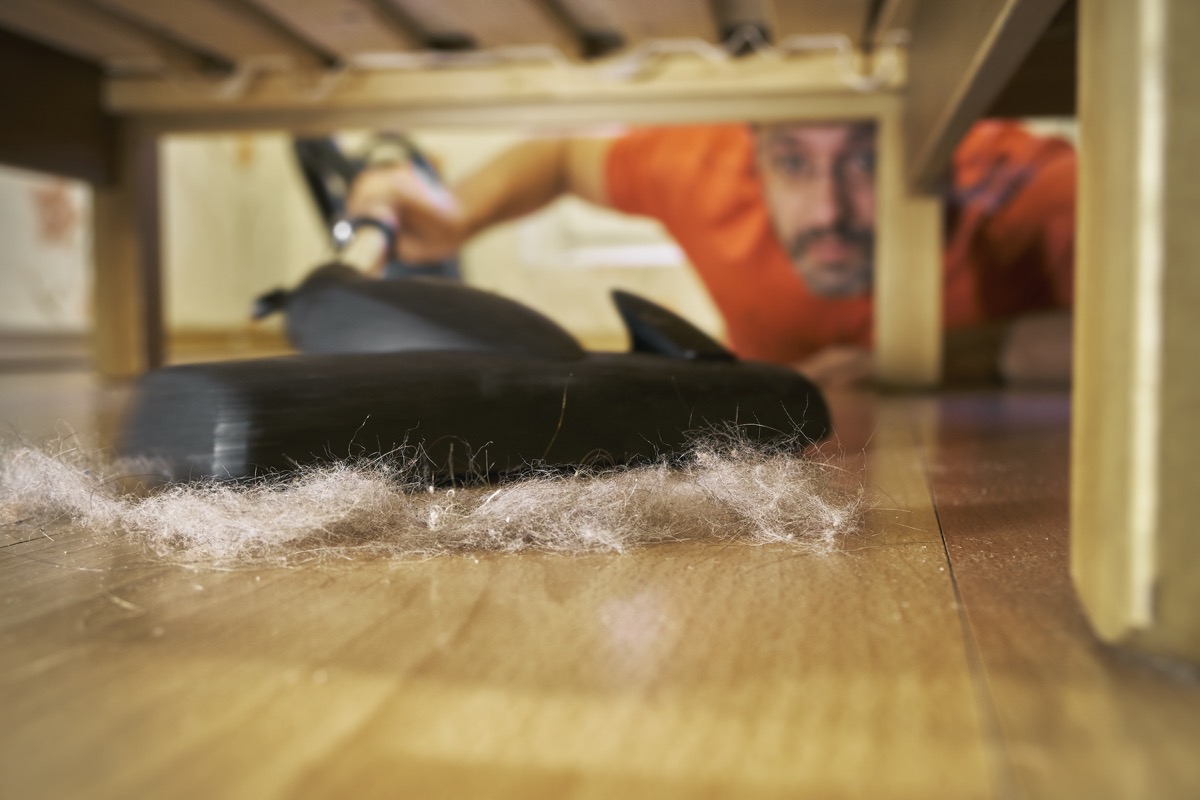The No. 1 Sign There’s a Snake Under Your Bed

Above all else, your bed is your one true comfort zone. And whether you like to pile it high with plush pillows or just need a set of soft sheets to help you fall asleep, it’s the one place you should always feel most at ease. Unfortunately, pests that make their way into your home can find your sleeping area just as inviting as you do. And if you’re concerned there may be a snake camping out under your bed or in your room, experts say you should look for one piece of evidence. Read on to see if you’re co-sleeping with a cold-blooded reptile.
READ THIS NEXT: Growing This in Your Yard Is Inviting Snakes to Your Home.
There are many ways snakes can find their way into your home from outside.

Even if they creep you out, there’s no denying that most snakes can be a boon to your yard and garden. But just like other animals, they can sometimes be enticed indoors by their very basic instincts. “Although snakes bring a lot of positive impact to the ecosystem, you’d rather not have them anywhere in your home,” Eddie Connor of Connor’s Pest Control tells Best Life. “If you encounter snakes in and around your house, they are most likely looking for food sources and shelter.”
One of the most common ways the reptiles can get themselves indoors involves cracks around your home’s foundation that develop over time due to wear and tear, mainly because it can be so easy for them. “Snakes can get into your home through a gap the size of a pencil,” says Nancy Troyano, PhD, a board-certified entomologist with Ehrlich Pest Control. “It’s important to close up any holes, cracks, or crevices in the home, especially near the crawl space. Drainage areas are a perfect entry point for snakes.”
And it’s not just gaps in the concrete that can let them in. Experts warn that snakes can enter homes through toilets, openings around plumbing and exterior walls, dryer lines, AC vents, and gaps around windows and doors.
There’s one easy way to tell when a snake may be hiding under your bed.

When it comes to unexpectedly discovering a snake in your home, most homeowners might suspect their garage, basement, or attic would be the most likely place to find them. But it may come as a surprise that your sleeping space can offer a lot of what the reptiles are looking for once they get indoors.
“Snakes are cold-blooded creatures. That means it can’t regulate its body temperature and therefore can’t keep warm,” Todd Milsom of Delsea Pest Control tells Best Life. “A snake may burrow into bedding to seek warmth. If you have a vent under or near your bed, snakes will likely hide there for warmth and to feel safe.”
And since snakes are such skilled hiders, the first sign that one is cozying up under your bed may come from your ears tipping you off that they’re hiding out. “You may be able to hear weird noises—like hissing or slithering—coming from under your bed at night if they’re there,” Nick Durieu from Senate Termite & Pest Control tells Best Life.
For more home advice delivered straight to your inbox, sign up for our daily newsletter.
Experts suggest looking for one clue when you go to investigate under your mattress.

Of course, even if the snake doesn’t make a peep, it can still leave behind evidence of its presence. If you suspect one may be camping out under your mattress, there’s one distinct marking that experts say you can find with a flashlight.
“Snakes like hiding in places where they aren’t often disturbed—which is why they may like the space under your bed,” Durieu says. “In many cases, this is a place that doesn’t get cleaned regularly, so you may be able to find tracks in the dust accumulated there.”
“And if the snake has lived there for a while, you can also find shed snakeskin,” he adds.
There are ways to make the space under your bed less hospitable to snakes.

Besides the immediate issue of sealing up entry points from outside, experts say the easiest way to avoid a snake finding its way under your bed is to make it a less comfortable place for them. Specifically, this means tidying up the traditionally chaotic space below your mattress.
“Snakes do not like human interaction, so if you eliminate clutter, they will have fewer places to hide,” says Connor.
And besides providing enticing living quarters, you can go a long way to keep reptiles away if you eliminate any rat or mouse issues in your home. “If you have rodents, snakes will want to find a way in to have a stable food supply,” Connor adds.
READ THIS NEXT: You’re Inviting Snakes to Your Home If You’re Not Cleaning This Up, Experts Say.